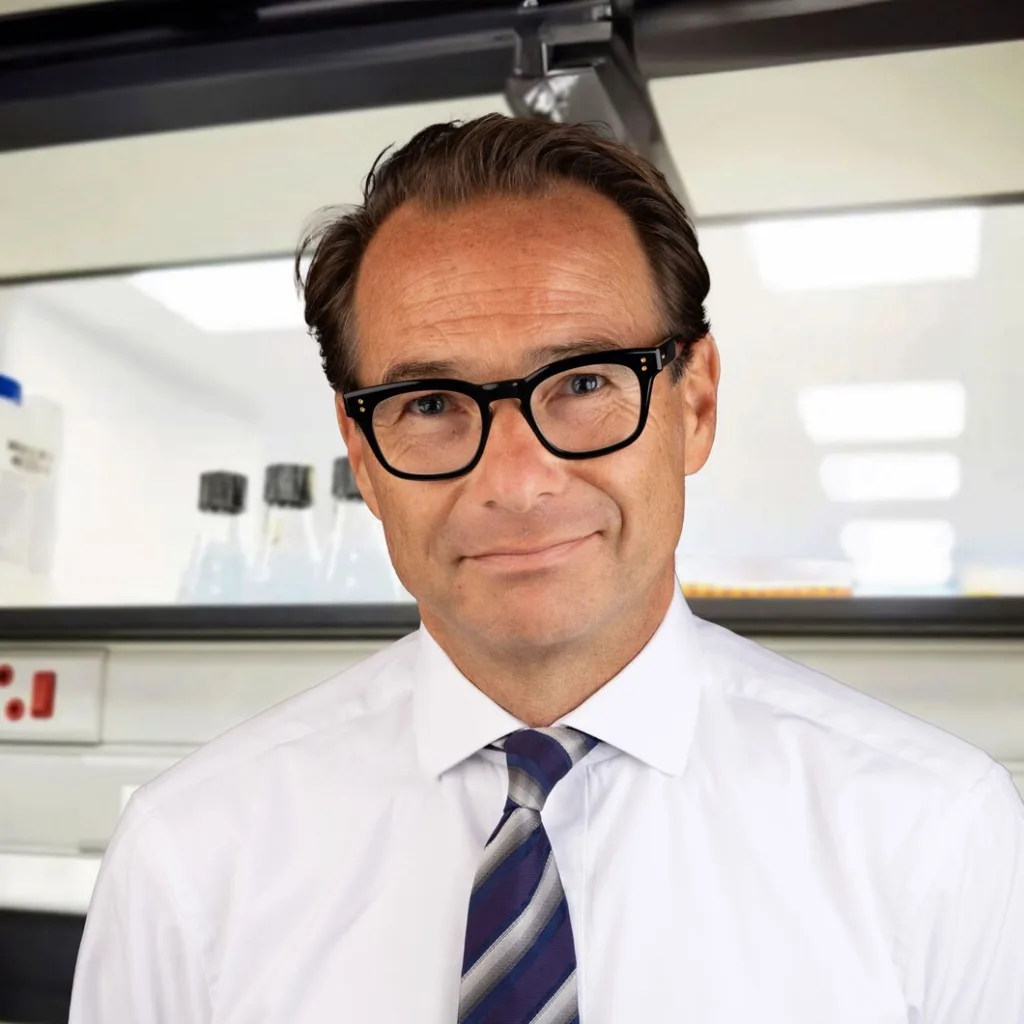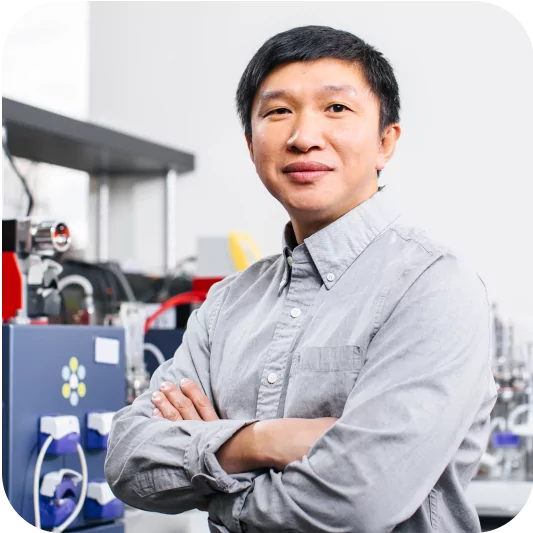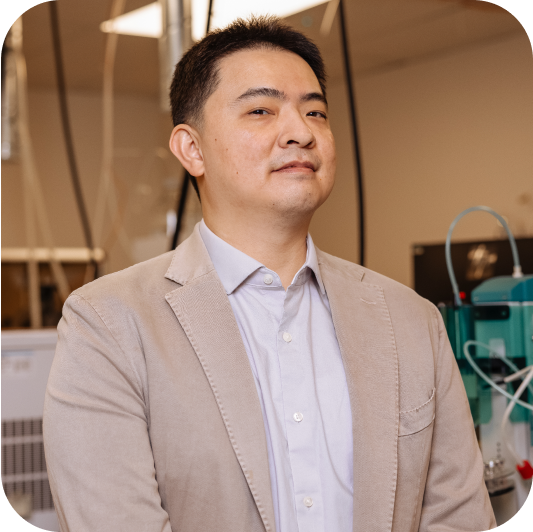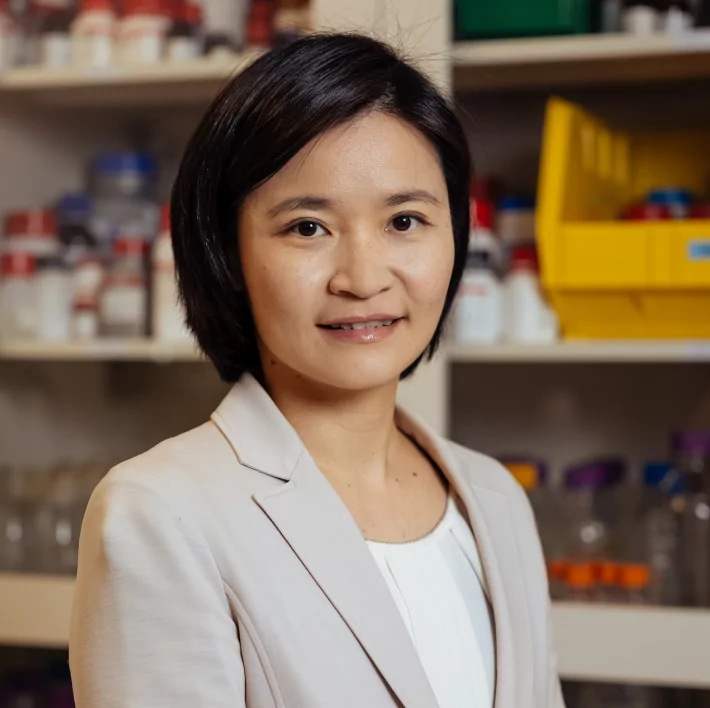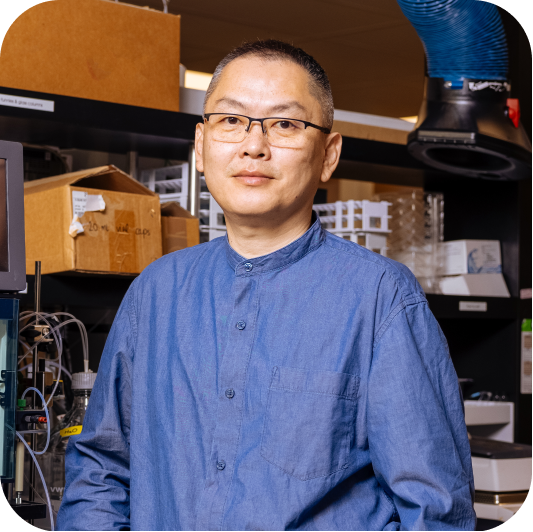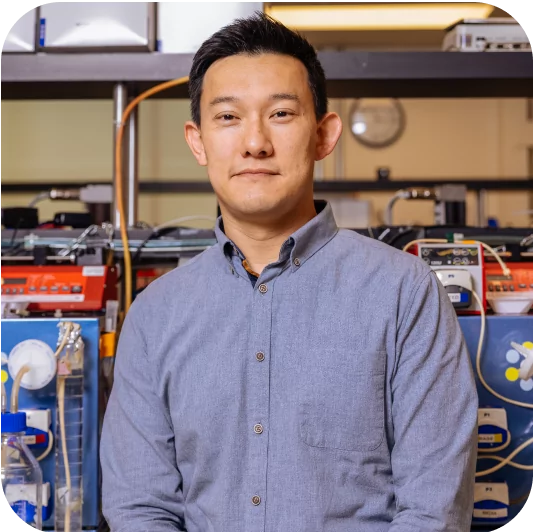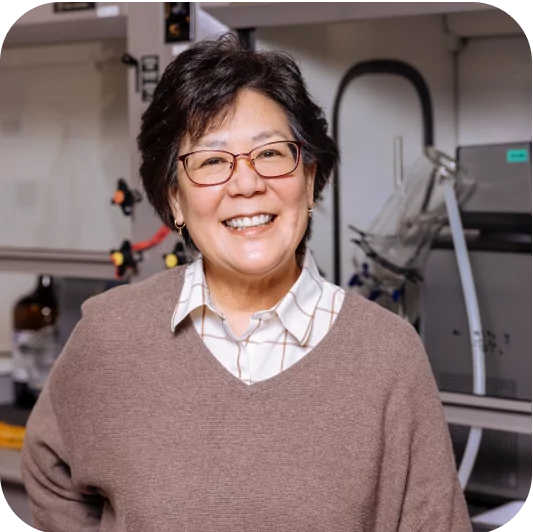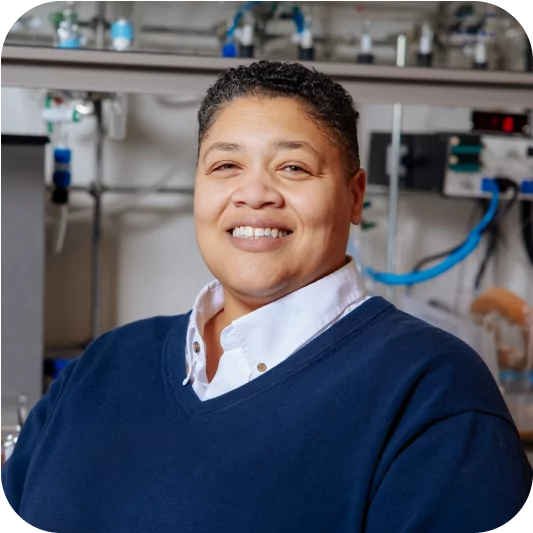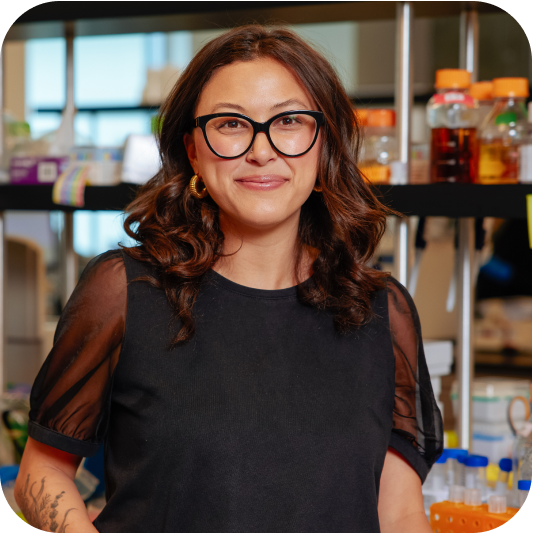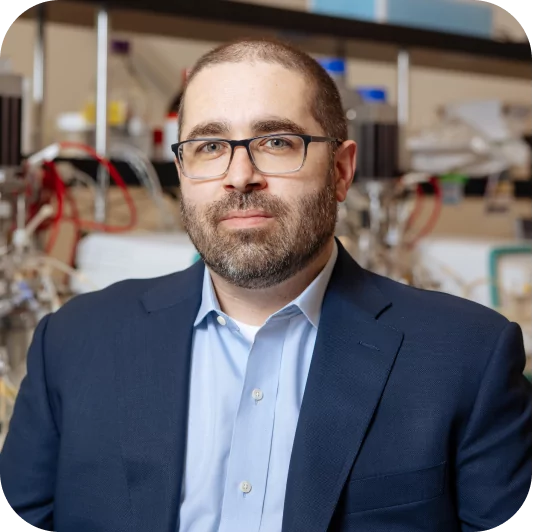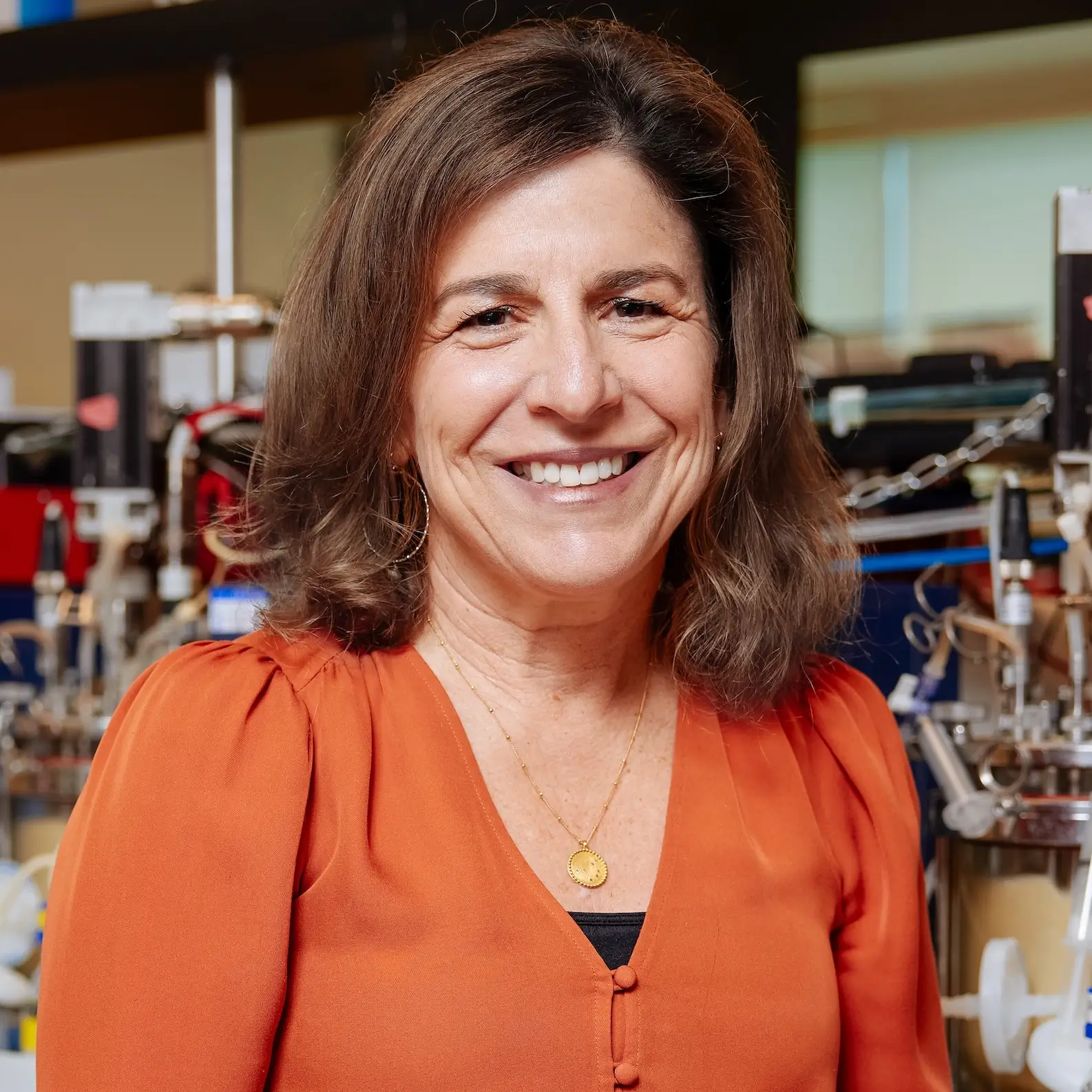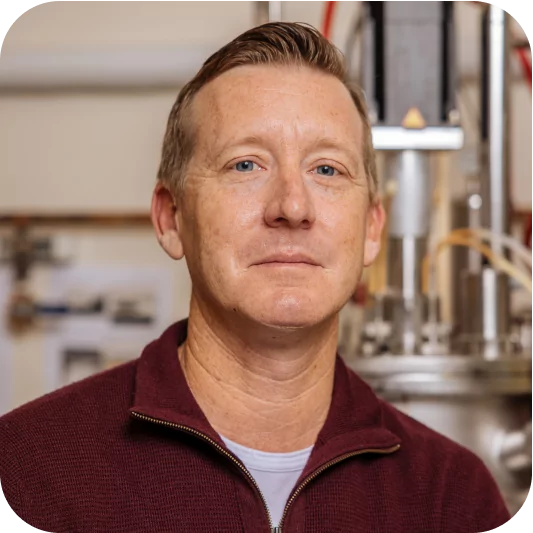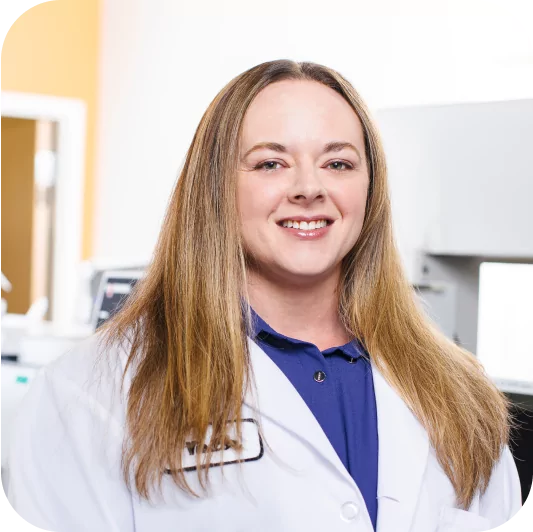Today, Antheia is pleased to announce the appointment of pharma and biotech finance veteran Eric d’Esparbes as Chief Financial Officer. Ahead of today’s announcement, we sat down with Eric to learn more about his career journey, what inspired him to join Antheia’s mission, and what he’ll focus on in this new role:
Tell us about your background and your career journey. What inspired you to pursue financial leadership at the executive level?
I’ve always loved science – everything from physics and math to biology and information technology were interesting to me. I initially planned to start my career in IT and I attended McGill University in Montreal with that goal in mind. However, I figured out very quickly that my deep preference is business and more precisely, finance. After about a year studying IT, I pivoted to business school, and that’s how I found my true calling. I specialized in international finance because of my interest in broadening my horizon and combining finance with global outreach. I love traveling, getting to know new cultures, and connecting with people from different backgrounds with different perspectives.
I began my career in the energy sector, where I assumed responsibility for the financial management of international portfolio companies. I oversaw a global portfolio of energy assets, including power generation and natural gas commodities – electrons, molecules of interest, gas, and other related commodity molecules.
I was fortunate early in my career to work at a major energy company as it was expanding rapidly and investing in international markets. So right away, I started traveling a lot and developing the financing structures for large-scale energy assets across Latin America, Asia, and Europe. I quickly went from a financial analyst to director of project finance to managing the financing arrangements of large infrastructure projects. I stepped into my first CFO role in 2000 and have since led finance teams for multiple companies pioneering disruptive technologies in their respective industries.
How did you transition from the energy industry into the health and life sciences space?
In 2010, I was approached about an opportunity to work with a company that was genetically engineering cyanobacteria to produce molecules of interest and the technology immediately caught my attention. In the energy business, I worked closely with a lot of engineers to understand how our technology and manufacturing processes worked. Financial and technical performance go hand in hand, so when I joined my first biotech company, I dove into the technology and learned initially from our scientists about genetic engineering, and I never looked back. All those learnings helped me to strengthen my financial leadership.
When you’re in the energy sector, there are many degrees of separation between your daily work and the end result. You’re producing electricity for lights, or molecules for cars and appliances. It’s a very long cycle. In life sciences, I feel you’re much more connected to the tangible impact of your work on people’s wellbeing. That connection to human health and quality of life felt like a calling for me. Ultimately, that’s why we do what we do.
With Antheia’s story, I think about Christina’s founding vision: making essential medicines more accessible while creating a more sustainable manufacturing process. These are noble goals that address real human needs. If you’re able to do something technically or scientifically that truly works, everything else comes down to execution. The business model, the financing structure, all the commercial aspects will come together if you execute well. And that’s what I like to do: partner with brilliant scientists and engineers and bring my experience to ensure we properly commercialize and fund the business so we can drive meaningful, positive change. That’s why I’m in this sector.
How did you come to learn about Antheia, and what made you say yes to the CFO opportunity?
I learned about Antheia from a trusted contact in my network and was immediately impressed by what this company has achieved. I knew from my previous roles how complicated and challenging it is to take great science into the commercialization phase. The hit rate is low because the jump from a scientific process that works in a lab to one that is financially viable is significant. I’ve worked with some really great technologies and some have succeeded and some have not. But as I was doing my research on Antheia, it quickly became clear that this company was different, having already demonstrated both technological and commercial viability. Between the commercial milestones the company has achieved, the robust pipeline of patents, and the impressive leadership team, I knew that I would love to be associated with this work. More importantly, I felt that I could bring value to the business and help Antheia grow into the next phase of commercialization. So I made my pitch, and I’m very happy to have been invited to be part of the Antheia team.
Now that you’re settling into your new role, what can you tell us about your priorities as Antheia’s CFO?
My responsibilities are fairly straightforward – a CFO is a CFO. My unique contribution is based on the stage of development of the company, the needs of the organization, and how I can complement the team that I’m joining. I have experience in small, large, private, and public companies, so I need to draw from my experience strategically to support the company’s current needs and set the stage for what the company is going to need tomorrow.
I don’t really have a single recipe. I’m not dogmatic, and my approach is very much tailored to the stage of the company and what it needs. My first and most important priority at this early stage is to listen. You don’t start by doing, you start by listening to learn the ins and outs of the company, the technology, the operations, and what can be improved.
A big part of my job is supporting Christina as her business partner. I’m amazed by everything she has accomplished in building this company and I hope to alleviate some of her workload so that she can focus on the many critical efforts that need her attention. Another big part of my job is raising capital and therefore introducing Antheia to a wider range of financial investors who are not yet familiar with the company and the opportunity it presents. Antheia was previously an R&D operation, but the company has been operating commercially for almost a year now, and is gearing up for a much larger scale of manufacturing and production. My outreach work will focus on educating analysts and investors in broader financial circles about the great work Antheia is doing.
Finally, I’ll be leading the efforts to refine our back office financial functions to set the company up for success as it moves through commercialization at a larger scale and prepares for longer-term corporate goals. This involves setting up specific systems, processes, and capabilities for the organization. They are not the glamorous parts of finance, but they are critical to ensure the success of the company.
Can you tell us more about the current fundraising environment in this sector?
From an investment perspective, the biotech sector has been challenging over the last four years or so, requiring a more targeted approach. As Antheia is transitioning to a much broader manufacturing base, so will our conversations with the investor community. Not only does Antheia’s mission resonate with investors, but the science has already been proven technically and operationally at commercial scale. What lies ahead is not about proving the science anymore, it’s about execution, production, and scale.
What are your hobbies or passion projects outside of work?
I’ve been happily married for 26 years now, and most of what I do outside of work is try to have as much quality time as I can with my wife. That’s job number one. I’m also an avid golfer. I’ve been playing since I was a kid, and fortunately, my wife has developed a taste for it over time. I’ve traveled and lived all around the world, so whenever we have a chance, we travel and play a golf game here and there.
Historically, I’ve also enjoyed driving fast cars – I don’t do this competitively, just for the record. Since a relatively young age, I’ve been actively driving on racetracks and I’m now an instructor with the Porsche Club of America. I love coaching because you never know what you’re going to get. You can have great fun with a beginner or even an experienced racer, depending on what they need to work on. I like that there’s always something to improve on and work toward. Very often, complete transformations occur in small increments. You take one step at a time, and then you wake up in the morning one day and say “wow, we’ve progressed a lot.” These are lessons that I take into life and work as well. I really love coaching and helping younger generations succeed.
